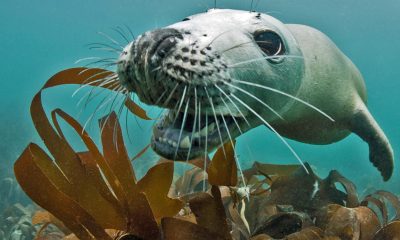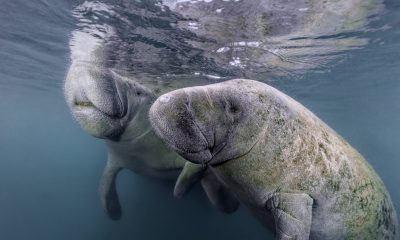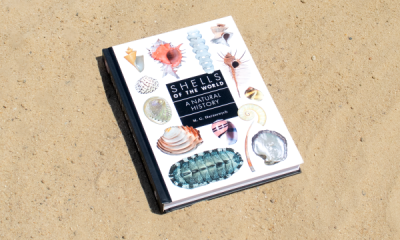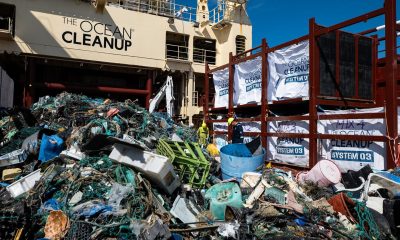Marine Life & Conservation
New report shows simple measures needed to cut beach plastic pollution
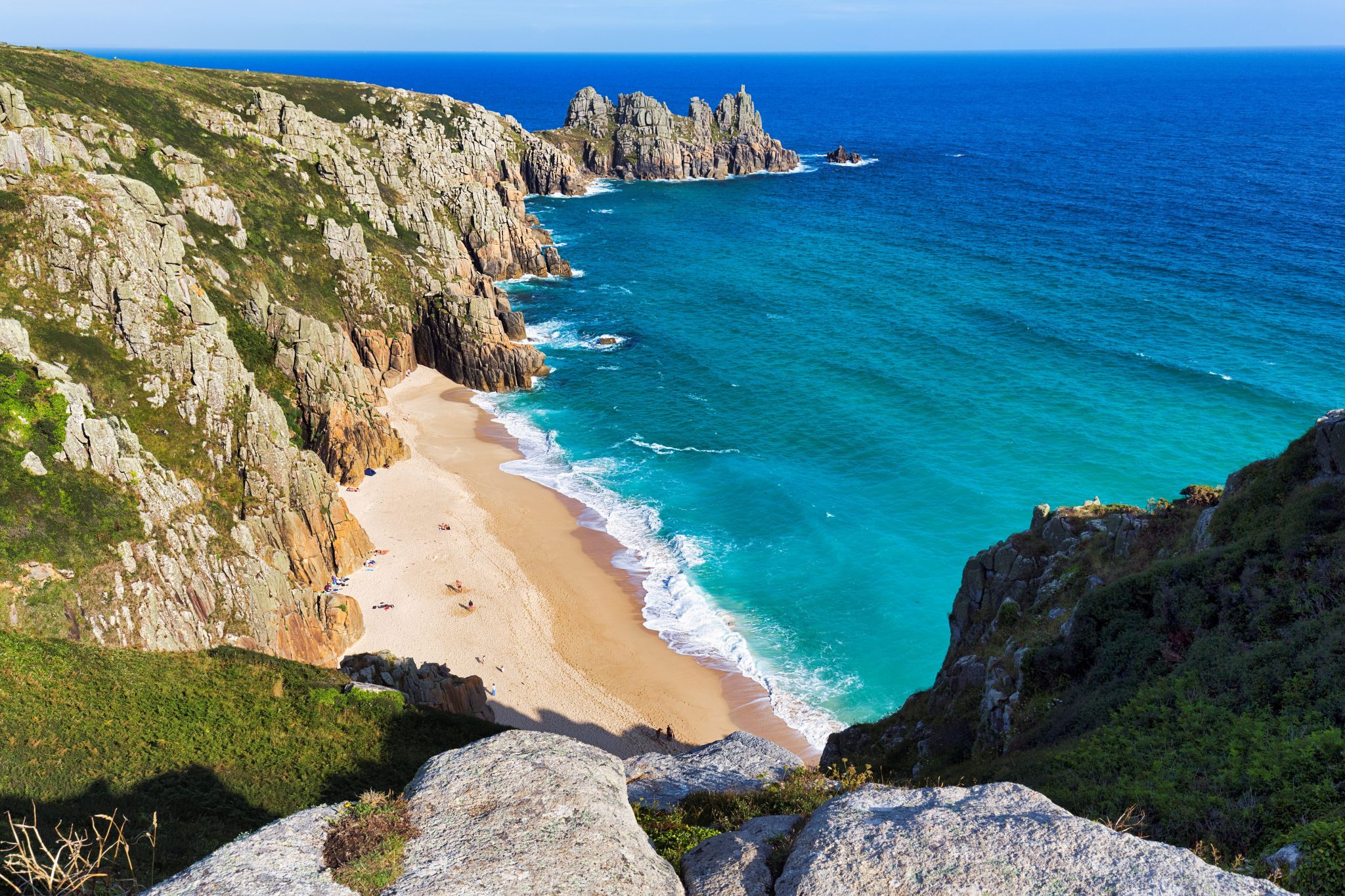
The Marine Conservation Society has launched its annual State of our Beaches 2023 report, highlighting the need for less single-use plastic items and more refillable options.
The charity’s beach cleaning programme, now in its 30th year, asks volunteers to record all litter that they find within a 100-metre stretch of beach. By gathering vital data from across the UK and Channel Islands, the charity creates change for cleaner seas and a healthier planet through policy and industry change. Last year, over 148 kilometres of beach were surveyed by volunteers, who removed 17,208kgs of litter from our coast.
Using data collected by over 14,000 volunteers, the State of our Beaches 2023 report shows that half of all litter collected came from public sources – either dumped, blown or washed onto our beaches.
Drinks-related litter, such as plastic bottles, caps and cans were one of the most found items, with an average of 16 found per 100 metres of beach surveyed. This figure is up 14% compared to the charity’s 2022 report.
Plastics caps and lids were recorded on 89% of surveys, with over 30,000 found in total. Plastic bottles were also commonly collected, with 73% of surveys finding this single-use item – a 4% increase compared to 2022. The charity’s inland litter pick survey, Source to Sea, also reported finding plastic bottles on 92% of cleans.
However, the charity’s State of Our Beaches 2023 report also indicates that some types of litter are on a downward trend. Although still in the top 10 litter items, disposable plastic cutlery, trays and straws were found on 5% fewer beaches across the UK, showing that bans on these plastic items between 2022 – 2023 could be working. The presence of plastic cotton bud sticks also dropped by 14%.
Lizzie Price, Beachwatch Manager at the Marine Conservation Society, said, “Half of the litter found on our beaches originates from public sources, underscoring the pressing issue of single-use plastic. Evidence shows that refillable alternatives and litter return schemes effectively reduce rubbish, as demonstrated by the decline our data has shown in items like plastic bags and disposable cutlery.
“Urgent and decisive action from UK governments is needed to accelerate our shift towards a circular economy, where we reuse, repair and recycle. The public needs greater access to refillable products and systems need to be implemented in which manufacturers are responsible for their waste.”
Governments across the UK have committed to delivering deposit return schemes from October 2025. However, the proposed scheme in England does not include glass items, despite glass being found on 52% of beaches in 2023. The charity is calling for governments across the UK to introduce compatible all inclusive deposit return schemes as soon as possible. This would see aluminium cans, and plastic and glass bottles have a 20p deposit which would be returned when recycled which would reduce drinks-related pollution.
Businesses are, however, starting to take refillable and reusable options into their own hands. Supermarket chain, Aldi, the largest corporate funder of the charity’s 2024 Beachwatch programme, is already leading the charge in refillable items by trialling refillable options for cereals and porridge oats in their stores over the past 5 months.
Plastics and Packaging Director, Luke Emery, from Aldi, who are running 4 beach cleans for staff and volunteers in 2024, said, “We are continually working to reduce single-use plastics and packaging, and making unpackaged product options more commonplace for our customers is a key part of this. We are really pleased with the uptake of our refillable range so far by customers. Not only are we making sustainable shopping more accessible, but we also offer refill products for a better price than the packaged alternative, helping our customers save money.”
Marine litter is one of the biggest threats to our seas, with plastic breaking down over time into microplastics and threatening marine life which can ingest or become entangled in them. The Marine Conservation Society is urging the UK Government to move faster on its policies to cut down plastic waste and prevent items from reaching our seas.
To find out more about the charity’s beach cleans and how to get involved, please visit mcsuk.org/beach-cleans
Blogs
Heading out on the water this Summer? Watch for manatees
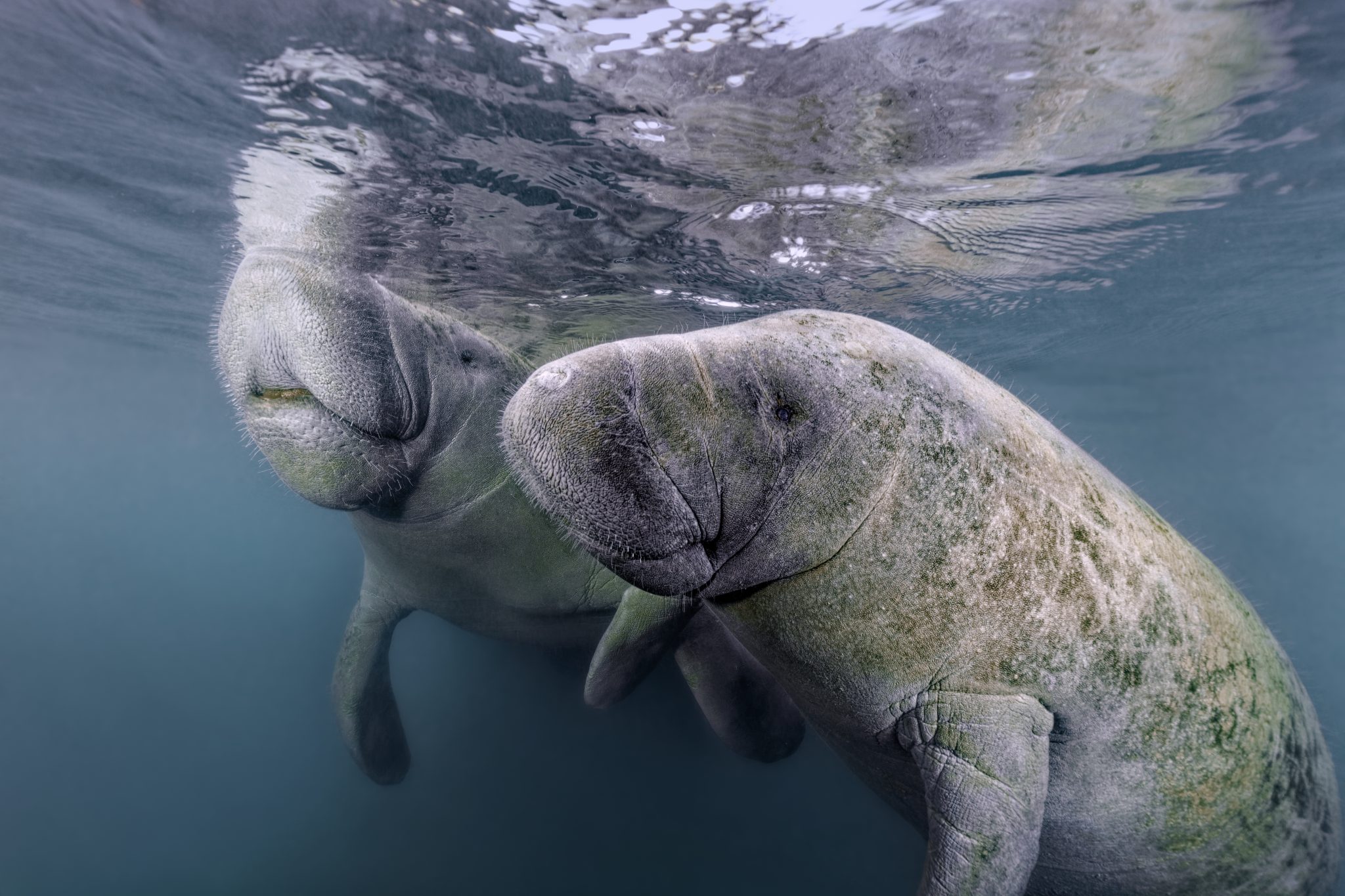
As National Safe Boating Week approaches, Save the Manatee® Club is urging boaters, and anyone that enjoys Florida’s waterways, to respect and protect the defenseless manatees that inhabit our shared waterways. From May 18 to 24, leading up to Memorial Day Weekend, the campaign aims to raise awareness about recreational boating safety and the importance of safeguarding imperiled manatees during the summer boating season. This week also emphasizes the importance of encouraging boaters to enroll in a boating safety course.
Manatees are semi-migratory marine mammals that are commonly found in shallow estuaries, bays, rivers, canals, and coastal areas throughout Florida and neighboring states. With some manatees venturing as far west as Texas and as far north as Massachusetts, collisions between these gentle giants and watercraft have become distressingly frequent. Boat propellers and high-speed collisions pose significant threats to manatees, often resulting in severe injuries or even death.
Save the Manatee Club is calling on all water enthusiasts to follow essential manatee safety tips to ensure the well-being of the imperiled manatee:
- Obey Speed Zone Signs: Familiarize yourself with and adhere to posted speed limits to prevent collisions with manatees.
- Reduce Glare with Polarized Sunglasses: Wear polarized sunglasses to enhance visibility and spot manatees below the water’s surface.
- Recognize Manatee Signs: Learn to identify signs of manatees in the area, such as swirls or flat spots on the water caused by their movements.
- Respect Manatee Sanctuaries: Keep a safe distance from posted manatee sanctuaries and avoid pursuing or harassing these marine mammals, as it is illegal and can disrupt their natural behaviors.
- Report Distressed Manatees: In Florida, promptly report distressed, injured, tagged, or orphaned manatees to the Florida Fish and Wildlife Conservation Commission (FWC) at 1-888-404-FWCC (3922). Outside of Florida, report sightings to the appropriate state agency or rescue organization. A list of agencies to contact is available at savethemanatee.org/report.
- Protect Seagrass Beds: Avoid boating over seagrass beds and shallow areas where manatees may be feeding. Stick to deep water channels while remaining vigilant, as manatees also utilize these channels during their travels.
- Dispose of Fishing Line Responsibly: Anglers should properly dispose of or recycle used fishing line to prevent entanglement hazards for manatees.
“Each year, National Safe Boating Week provides an excellent reminder for all of us to be aware that we share our waterways with vulnerable manatees,” emphasized Patrick Rose, Aquatic Biologist and Executive Director of Save the Manatee Club. “With the recent Unusual Mortality Event on Florida’s East Coast claiming an alarming number of manatees’ lives, it is more crucial than ever to prevent preventable deaths caused by watercraft collisions. By following manatee-safe boating guidelines, such as obeying speed zones and remaining vigilant for manatees, everyone on the water can contribute to the protection of these gentle giants.”
Save the Manatee Club offers a range of free materials to help safeguard manatees and raise awareness about manatee-safe boating practices. Shoreline property owners and park or marina managers can order aluminum dock signs to alert others about the presence of manatees in their areas. Boaters and paddlers can request packets containing a safety tips card, a waterproof boat banner, and a decal to display on their vessels, providing the number to report manatees in distress. To view and request these materials, visit savethemanatee.org/resources. Save the Manatee Club will also be hosting a live webinar for National Safe Boating Week on Tuesday, May 21st at 6pm EST. To register, visit savethemanatee.org/register.
Blogs
The Ocean Cleanup Breaks 10,000,000 KG Barrier

The Ocean Cleanup, the global non-profit project, has removed a verified all-time total of ten million kilograms (22 million lbs.) of trash from oceans and rivers around the world – approximately the same weight as the Eiffel Tower.
To complete its mission of ridding the oceans of plastic, The Ocean Cleanup uses a dual strategy: cleaning up the Great Pacific Garbage Patch (GPGP) to remove the plastic already afloat in the oceans, while stopping the flow of plastic from the world’s most polluting rivers.
Through cleaning operations in the GPGP and in rivers in eight countries, the cumulative total of trash removed has now surpassed ten million kilograms. This milestone demonstrates the acceleration of The Ocean Cleanup’s impact, while underlining the astonishing scale of the plastic pollution problem and the need for continued support and action.
While encouraging for the mission, this milestone is only a staging point: millions more tons of plastic still pollute our oceans and The Ocean Cleanup intends to continue learning, improving and innovating to solve this global catastrophe.
This announcement comes as governments from around the world meet to continue negotiations to develop a new legally binding instrument to end plastic pollution at INC4 in Ottawa, Canada. Representatives of The Ocean Cleanup will be in attendance and the organization will be urging decision-makers to collaborate towards a comprehensive and ambitious global treaty which addresses plastic at all stages of its life cycle and in all marine environments worldwide, including in areas beyond national jurisdiction.
It is encouraging to see that the need for remediation is reflected in the various options for potential treaty provisions. It is essential that the final treaty contains clear targets for the remediation of legacy plastic pollution, and reduction of riverine plastic emissions.
Tackling plastic pollution requires innovative and impactful solutions. The treaty should therefore incentivize the innovation ecosystem by fostering innovations that make maximal use of data, technology and scientific knowledge – such as those designed and deployed by The Ocean Cleanup.
‘After many tough years of trial and error, it’s amazing to see our work is starting to pay off – and I am proud of the team who has brought us to this point.’ said Boyan Slat, Founder and CEO of The Ocean Cleanup. ‘While we still have a long way to go, our recent successes fill us with renewed confidence that the oceans can be cleaned.’
The Ocean Cleanup was founded in 2013 and captured its first plastic in 2019, with the first confirmed catch in the GPGP coming soon after the deployment of Interceptor 001 in Jakarta, Indonesia. After surpassing one million kilograms of trash removed in early 2022, the non-profit project has since progressed to the third iteration of its GPGP cleaning solution, known as System 03, and a network of Interceptors currently covering rivers in eight countries, with more deployments set for 2024.
About The Ocean Cleanup
The Ocean Cleanup is an international non-profit organization that develops and scales technologies to rid the world’s oceans of plastic. They aim to achieve this goal through a dual strategy: stemming the inflow via rivers and cleaning up the legacy plastic that has already accumulated in the ocean. For the latter, The Ocean Cleanup develops large-scale systems to efficiently concentrate the plastic for periodic removal. This plastic is tracked and traced through DNV’s chain of custody model to certify claims of origin when recycling it into new products. To curb the tide via rivers, The Ocean Cleanup has developed Interceptor™ solutions to halt and extract riverine plastic before it reaches the ocean. Founded in 2013 by Boyan Slat, The Ocean Cleanup now employs a broadly multi-disciplined team of approximately 140. The foundation is headquartered in Rotterdam, the Netherlands.
For more information, visit: theoceancleanup.com and follow @theoceancleanup on social media.
-

 Marine Life & Conservation Blogs3 months ago
Marine Life & Conservation Blogs3 months agoCreature Feature: Swell Sharks
-

 Gear Reviews4 weeks ago
Gear Reviews4 weeks agoGEAR REVIEW – Revolutionising Diving Comfort: The Sharkskin T2 Chillproof Suit
-

 Blogs2 months ago
Blogs2 months agoMurex Resorts: Passport to Paradise!
-

 Blogs3 months ago
Blogs3 months agoDiver Discovering Whale Skeletons Beneath Ice Judged World’s Best Underwater Photograph
-

 News3 months ago
News3 months agoPADI Teams Up with Wellness Brand Neuro to Drive Ocean Change and Create a Blue State of Mind
-

 Marine Life & Conservation2 months ago
Marine Life & Conservation2 months agoSave the Manatee Club launches brand new webcams at Silver Springs State Park, Florida
-
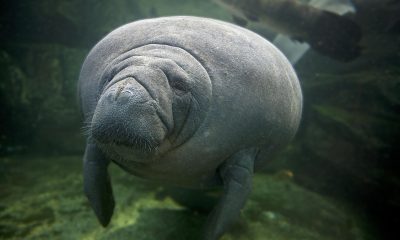
 Blogs2 months ago
Blogs2 months agoSeagrass Awareness Month brings critical food source for Manatees to centre stage
-
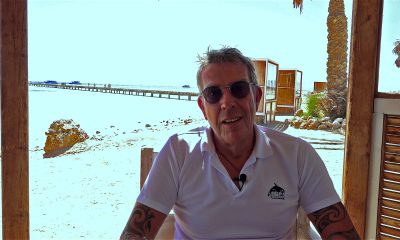
 Blogs1 month ago
Blogs1 month agoSOMABAY: Scubaverse interviews Wolfgang Clausen, General Manager, ORCA Dive Clubs



